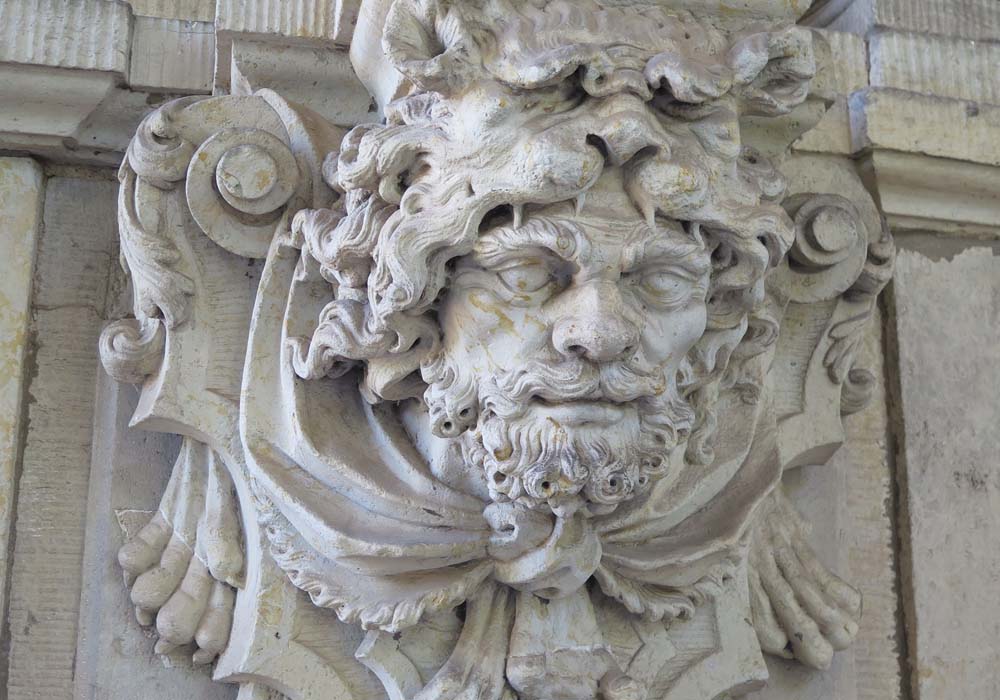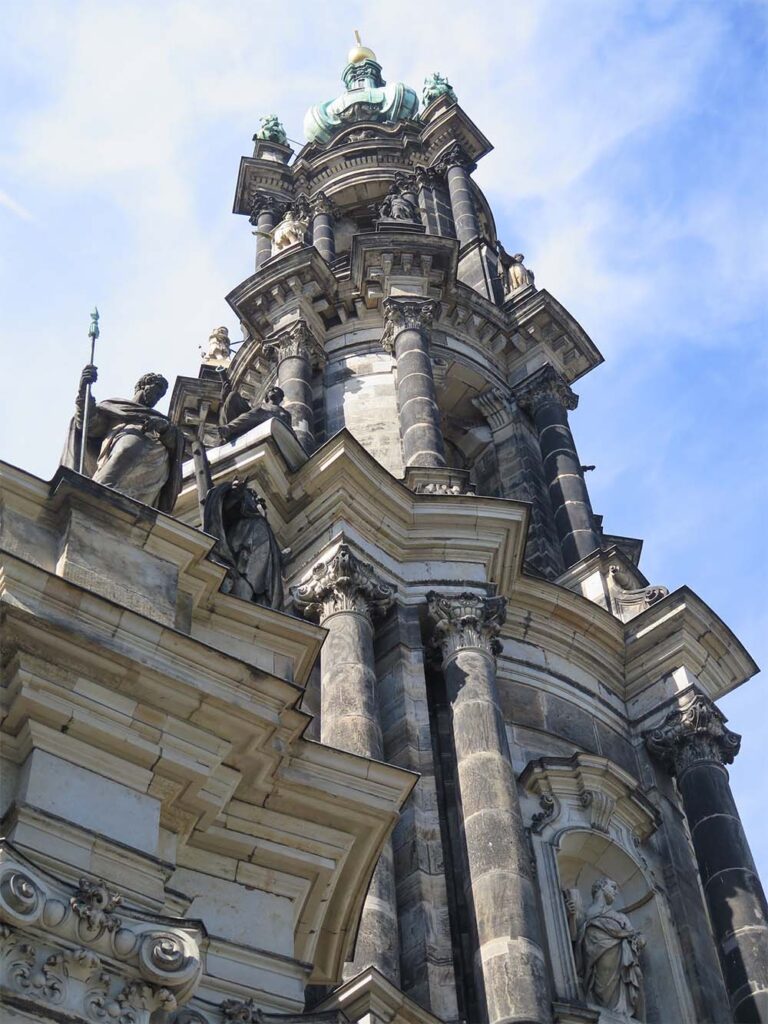An aunt behind bars
Two of my mother’s sisters were nuns. ‘When one of your sisters becomes a nun,’ she informed me, ‘there is no hope of competing. They win hands down.’ If she is to be believed, then when a priest came to preach in the hope of eliciting vocations, at the convent boarding school in Armagh her parents sent her to, she joined her hands and fervently begged: ‘Please God, not me! Please God, not me!’ Which did not prevent her from assuming that I, her youngest child, was ripe to be sacrificed to the church. ‘I was only waiting for you to name the order,’ she told me, to my total astonishment. The notion had never so much as entered my mind.
There were seven girls and one boy in the McCrossan family. A second brother, Jack, died tragically of tuberculosis in his late teens, after which my grandmother had a breakdown. That was offered as the principal reason for sending my mother away, a punishment not inflicted on any of her siblings. The eldest, May, joined the order of the Sacred Heart and, after spending a period at a convent in Vienna, taught German for the remainder of her life. It was through this connection that my mother made it to Armagh. Later May joined the staff at Kilgraston, an upmarket girls’ boarding school housed in a magnificent Adam building just outside Bridge of Earn in Perth. One of the more hilarious letters she wrote to my mother, after the Second Vatican Council brought about a major reorganisation, communicated the news that ‘just before Christmas all our sisters became mothers’.
Once the family acquired a car, we would visit the school at Kilgraston outside term time. Only a few forlorn individuals whose families could not accommodate them during the vacation were left on the premises. The treat for me was getting access to the school library, where I discovered Tolkien’s Lord of the Rings trilogy and asked to be given it as a present for my thirteenth birthday. On another visit I was offloaded for the day with the domestic science teacher, a Hungarian woman who involved me and her visiting daughter in the tricky, endlessly sticky and exhausting process of making strudel pastry, stretching it out on greased baking paper, adding the filling, rolling it all up then putting the assembled cylinders into the oven. On one occasion we were served tea in the downstairs lobby by a young nun who looked so deliriously happy I concluded she must be either drunk or taking drugs.
The aunt behind bars was a sister only slightly older than my mother named Oonagh. She belonged to an enclosed order whose premises, occupied exclusively by women, were referred to as a “monastery”. The distinction between a “monastery” and a “convent” does not depend on the sex of the inhabitants, but on not being overlooked.
My mother would speak of ‘going to Carmel’. When we arrived, we were ushered in by a young sister, often a novice, whose responsibility it was to deal with visitors from the outside world. We would enter a dark ground floor room and take our seats. In front was a metal grille extending from wall to wall with spikes pointing towards us, the outside world. A wooden partition was folded across and secured so we could see nothing of what lay beyond.
We would hear the nuns arriving, upon which an exchange of Latin phrases would begin, my mother and her sister responding to one another in turn. I have no notion what they were saying and no means now of recovering the phrases, much as I would like to. We were never permitted to see Oonagh alone. One or two other members of the community were always with her. Was it their task to check up on what she might be saying? Perhaps. The atmosphere was invariably friendly and welcoming. Indeed, the oddest aspect of these visits is that they inspired in me a respect for communities of women dedicated to prayer and manual tasks which has never faded. As a child, I noted that Oonagh had a faint moustache. My mother told me it was forbidden for the nuns ever to see themselves naked, so they would wash in segments, uncovering one body part at a time.
Again going by what my mother said, their father had been against Oonagh’s joining the Carmelites, insisting, when she announced her plan, that a year be allowed to elapse before she put it into action. When eventually she did leave, she had a mental breakdown and was sent back home to recuperate. For as long as she was with the family, all mirrors in the household had to be covered. Oonagh had been told that if she looked into one, then she would see the devil. Her name as a nun was Sister Mary of Jesus, and her letters were written in a beautiful, ecclesiastical hand using blue ink from a fountain pen.

For me the first months at Cambridge were a time of enormous pressure. I had never spent more than three days away from my family. The combination of a totally new environment, challenging social interactions which included intermittent encounters with the peculiar world of the English upper middle classes, and losing everything that had been familiar to me risked becoming more than I could cope with. I still prayed regularly, went to mass and took communion, managing for nearly three years to abandon masturbation, so that my sexual drive was close to being successfully suppressed. Until the last term in my final year. In distress I looked everywhere for support, including to my Carmelite aunt. Oonagh had a volume of Schubert’s piano sonatas splendidly bound for me, in pale beige leather with an embossed pattern, her own and her community’s handiwork.

The Catholic chaplaincy at Cambridge was a welcoming environment. On the very first Sunday I attended mass, during Freshers’ Week, when the time came for coffee and biscuits I realised that I must either stay where I was next to the wall, and “die” socially, or make a move. So I introduced myself to the man beside me, started talking, and did not look back. I made at least two good friends there.
In the final year, we adopted a practice which still moves me when I think of it. Mass was held in individual student rooms, and communion dispensed before, having fasted, we tucked into a bread and cheese lunch. But piety and belief were being progressively unpicked. Another Catholic named Geoffrey Smart, whom I later visited in the English seminary in Rome, where the gay antics of certain inmates disgusted me, informed me that Benjamin Britten and Peter Pears were not just gay but also formed a couple. He encouraged me to sleep with no clothes on, a procedure which, the first times I tried it out, left me with an indefatigable erection the whole night through. No substitute for a proper sex life.
My elder sister told me that I had no chances of getting myself sorted out for as long as I had truck with the Catholic church. By this stage she and her husband were already paid up members of the Fourth International, enthusiastic Trotskyites whose bookshelves boasted a complete edition of the works of Nicolae Ceausescu in English, and a part of whose monthly salaries went to funding the movement. One of my closest friends came out clamorously as gay, upon which I grew a beard and acquired the semblance of a girlfriend. That was a conscious cover up. I knew I would have to investigate the truth more honestly, hopefully after leaving for Italy. That would also mean bidding farewell once and for all to Catholic piety and doctrine. What I regretted most was losing the liturgy of the mass, which I had always loved, especially when it was in Latin, and you used another language for addressing God.
Which brings me to the feast day of Saints Peter and Paul on June 29th 1973, which was when I told my mother that no, I would not be attending mass on that Holiday of Obligation or any future one. The die had been cast. My new existence as a born-again pagan had already begun. Having one aunt behind bars offered no antidote.


